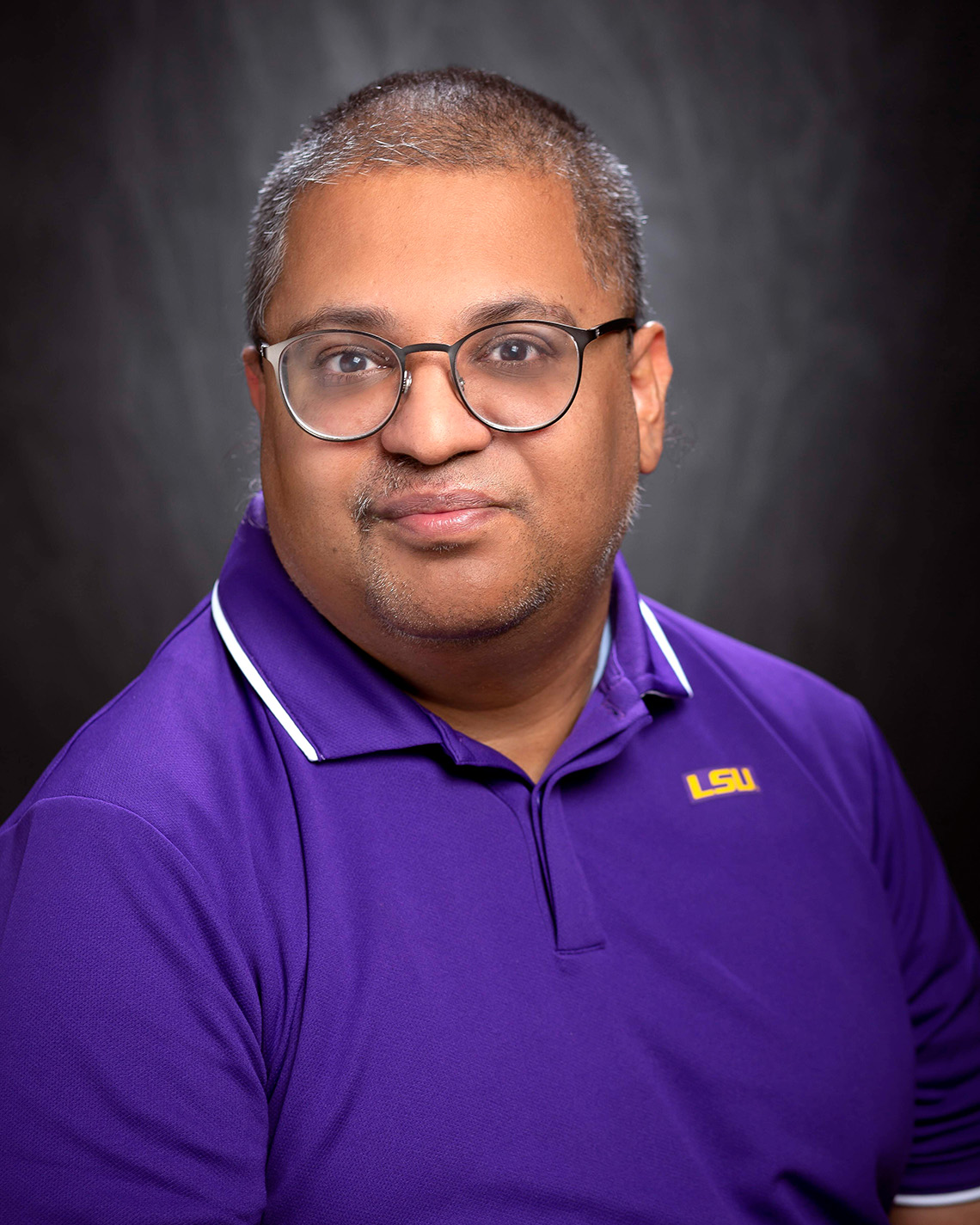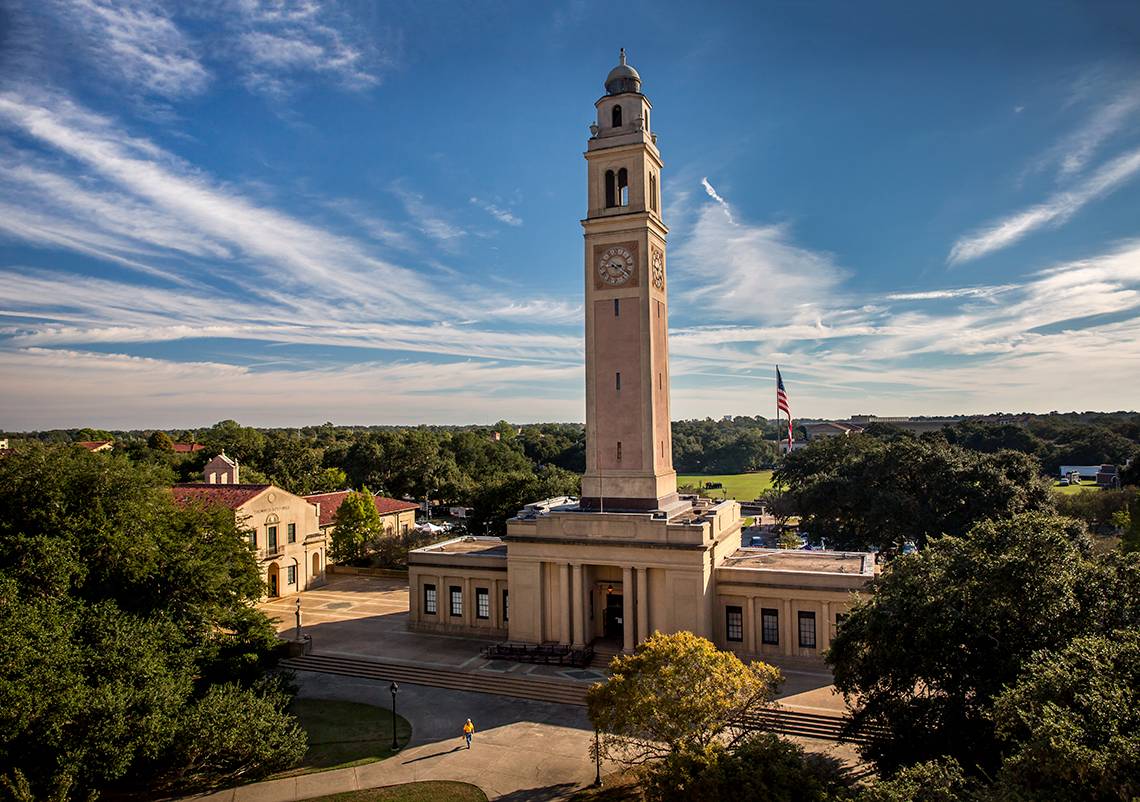Our Research

LSU Student Team’s FarmSmart App Helps Farmers Manage Crops, Weeds With AI
LSU students and alumni have created a new, AI-powered tool called FarmSmart that allows farmers and gardeners to quickly access actionable intelligence on how to best manage their crops and get rid of weeds.

LSU Researchers Awarded $1.5 Million to Advance Worldwide Access to High-Performance Computing
LSU researchers have been awarded a $1.5 million Pathways to Enable Open-Source Ecosystems, or POSE, grant from the National Science Foundation to advance the ecosystem surrounding HPX, a software library developed at LSU.

LSU EE Professor Acquires Self-Driving Car Studio for Students, Faculty
The studio will provide faculty a fertile environment for intelligent transportation research, including CAV (connected autonomous vehicles) and AI (artificial intelligence), and provide students with up-to-date, immersive learning experiences in important application areas.

LSU Researchers Use Artificial Intelligence Platform to Tackle Chronic Disease Management, Wellness
-- LSU researchers hope to revolutionize chronic disease management by teaching an artificial intelligence engine to analyze protein interactions, which are crucial to understanding what causes illnesses.

LSU Cyber AI Team Supports $25 Million National Defense and Energy Project
The National Nuclear Security Administration, part of the U.S. Department of Energy, has awarded $50 million in cooperative agreements to only two university consortia to support nuclear security and nonproliferation. LSU researchers will work with colleagues at 15 universities and eight national labs to develop AI models to protect the nation from nuclear threats while training a new generation of data science, cyber and AI experts.

Creative Lead of Microsoft's Global Search and AI Team to Speak at LSU's AI-Focused Symposium
The generative AI market size reached $45 billion globally in 2023, and 56% of corporate executives don’t know if their organizations have ethical standards in place for guiding the use of AI tools.

LSU Students Showcase their AI Solutions for Healthcare, Farming and Research
LSU students showcased their Artificial Intelligence solutions for real-world problems in healthcare, agriculture and academia on Tuesday, December 5, at the LSU Foundation Building's Harrison Board Room.

AI and Alternative Data Could Help Millions Gain Access to Credit
Less than half of all U.S. adults have access to prime credit because of their credit score. But new LSU and Harvard University research shows a lot more people could become eligible if lenders use artificial intelligence, or AI, and alternative data, such as education and employment history. Smarter underwriting algorithms would especially benefit recent college graduates and young people with short credit histories as well as people with low or no credit scores.

Chemical Industry Leader BASF Taps LSU to Help Optimize Its Operations Using AI
BASF, the largest chemical producer in the world, is collaborating with LSU chemical engineers to better understand and predict its own production ebbs and flows using artificial intelligence, or AI.

Want Safe Roads? LSU Researchers Think Artificial Intelligence Can Help Us Understand Driver Behavior
The Federal Motor Carrier Safety Administration has awarded the LSU Center for Analytics and Research in Transportation Safety a competitive grant to build an AI engine to better understand driver behavior that leads to crashes in order to help prevent them.

LSU Improves Storm Surge and Flood Predictions with AI
The LSU-developed tool to predict storm surge and flooding during severe weather events—the Coastal Emergency Risks Assessment, or CERA, website—has become an essential resource for thousands of emergency managers and first responders in Louisiana and the nation’s coastal states to help protect people and infrastructure. Now, the tool will become even smarter and faster, thanks to artificial intelligence.

LSU Researchers Use AI to Track Cybercrime in Louisiana And Beyond
LSU cybersecurity researchers are developing a new tool, called HookTracer, to speed up cybercrime investigations using AI.

LSU Research Team Leads Federal Study of Underwater Mudslides in the Gulf of Mexico to Understand Impacts on Energy Infrastructure, Shipwrecks
An interdisciplinary team of LSU researchers is coordinating the largest-ever collaborative study of the seabed where the Mississippi River meets the Gulf of Mexico with $3.8 million in support from the Bureau of Ocean Energy Management, or BOEM.

Researchers at LSU Health Shreveport and LSU Shreveport Use AI to Better Understand and Treat Brain Tumors
Medical doctors are collaborating with computer scientists to improve care for patients with cavernous malformations, some of the most difficult-to-treat tumors in the head and spine.

LSU AI Smartphone App Helps Mentally Ill, Families, Caregivers in Seven Louisiana Parishes
Through a partnership with Capital Area Human Services District, one of Louisiana’s largest behavioral health providers, LSU leverages AI technology to catch early warning signs of serious mental illness and improve treatment.Mental health illustration

LSU Biologist Applies AI to Build a World Plant Life Cycle Timing Database
LSU biologist Daijiang Li is building the first worldwide database on plant phenology, or the study of the timing of plant life cycles, which will be called Phenobase.

Diet Not Working? Let AI Rearrange Your Plate
LSU researchers are using artificial intelligence, or AI, to effectively predict individual responses to different diets. LSU’s Pennington Biomedical Research Center recently partnered with LSU Health New Orleans to leverage new technologies in the fight against the obesity epidemic and health disparities in Louisiana by joining the largest-ever national effort to leverage big data science for precision health.

LSU Scientist Works with Amazon to Fight Obesity, Diabetes Using Smartphones and AI
One of Louisiana’s most prominent researchers, Dr. Steven Heymsfield at LSU’s Pennington Biomedical Research Center, or PBRC, was tapped by Amazon to improve the body composition component of their Halo app, launched in 2020, using smartphone photography and artificial intelligence.

LSU of Alexandria Increases Access to STEM Careers Through Robotics and Support of Surrounding Schools
Through robotics and community outreach to elementary, middle and high schools in central Louisiana, LSU of Alexandria, or LSUA, is increasing access to careers in science, technology, engineering and math, or STEM, for a growing number of students, including at underserved schools. For many, robotics is their first experience with machine learning and AI.

LSU Research Team Uses AI to Quickly Discover Personalized Cancer Cures
LSU researchers have built a cancer drug discovery engine powered by AI that soon could match any type of cancer, based on a small cell sample from a patient, with the drug most likely to cure that cancer.

LSU Physics Professor Launches New AI Space Start-up
Atlantis Industries aims to accelerate off-world technology breakthroughs.

Harnessing a Tweet Storm: Using Fairness-aware Artificial Intelligence and Social Media to Improve Hurricane Resilience, and More
How we can use artificial intelligence for social good? Artificial intelligence, or AI, can help us make decisions, but one of the biggest concerns is the bias problem.